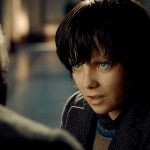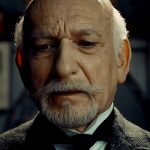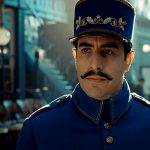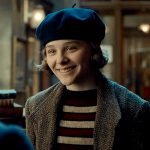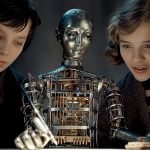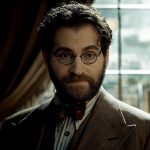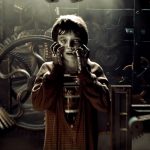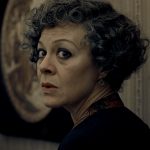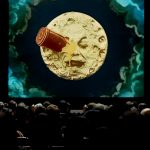Hugo – 2011
I had seen this movie a long time ago, and was much more impressed with it the second time around. It was directed by Martin Scorsese and was a very well-made movie that earned eleven Academy Award nominations. It took home Oscars for Cinematography, Art Direction, Visual Effects, Sound Editing, and Sound Mixing. I used to think the film was Hollywood being self-indulgent, patting itself on the back for existing. I thought the story felt forced. But I can now watch the movie and see it with a more mature eye.
Hugo was written and filmed in the style of a fairytale. Because of this, characters could do ridiculous things and nobody seemed to care. A boy could live a charmed existence without a shred of parental guidance or protection, and still be a basically well-mannered mechanical genius. A man could be a mean, old curmudgeon and still not alienate everybody he comes in contact with. Even the mean police officer, the film’s main antagonist, could be a sour, evil weasel, and yet end up as a good and sympathetic character. In fact, every character in the film had a happy, fairytale, ending.
The main character, of course, was Hugo, played by Asa Butterfield, a twelve year-old boy whose father, Mr. Cabret, played by Jude Law, was a clockmaker. His brother Claude, played by Ray Winstone, worked at the railway station at Gare Montparnasse, maintaining all the clocks, and after his father’s death, he takes Hugo in. He teaches Hugo how to do his job, then disappears, leaving the boy to carry on the work. From then on, Hugo lives in a secret hideaway behind the walls of the train station. He has a maze of unseen ladders, tunnels, walkways, trap doors, and windows through which he interacts with the outside world.
Like the mysterious Hunchback of Notre Dame, Hugo lives alone and watches the lives of the people who work at the station unfold. He seems to know them all, though none of them are aware of his existence. He only comes out to steal food to eat, and mechanical parts to tinker with. Do you see how it resembles a fairytale? And that is just the setup. The gears, springs, and wheels he collects are all pilfered with a single goal in mind. He wants to fix a mysterious and fabulous automaton that he and his father had been trying to restore.
Hugo spends much of his time trying to avoid being caught by the train station’s police man, Inspector Daste, played by Sacha Baron Cohen, who wants nothing more than to send the boy to the orphanage. Daste is a mean cripple who has no problem injuring innocent people and destroying their property in his attempts to catch Hugo. Personally, I’ve never had much respect for the actor, but I suppose, in this case I have to cut him some slack. Here, he played the part he was given.
One day Hugo is caught stealing a mechanical toy from a shop owner named Papa Georges, played by Ben Kingsley. He also meets the man’s granddaughter, Isabelle, played by Chloe Grace Moretz. Soon after the two become friends, Hugo meets Mama Jeanne, Georges’ wife, played by Helen McCrory. Hugo and Isabelle fix the automaton. The fantastical humanoid machine is designed to draw a picture, which ends up setting the two on the path toward adventure.
From there, the remarkable coincidences kicked into overdrive. Whatever needed to happen to move the story along to its inevitable conclusion happened at just the right moment. If they needed a special heart-shaped key to start the automaton, Isabelle just happens to be wearing it around her neck, having been given it by her grouchy old grandfather. If they need to learn about the early days of cinema, Christopher Lee, playing the part of book seller Monsieur Labisse, knows exactly where to find the perfect book about it in the library. But the most blatant example is when they needed to know about the early film director, Georges Melies, the author of the book they are reading, Rene Tabard, played by Michael Stuhlbarg, just happens to see them reading his book. He takes them to his home where he has an entire room dedicated to early silent films, and the last copy of one of Melies’ films. I had to roll my eyes just a little.
But the movie had some really great visuals that often reminded me of the films of Tim Burton, and some pretty inventive special effects. The automaton was particularly magical. The music by Howard Shore was brilliant. But I think the most important aspect of the film was its use of the actual films of the real Georges Melies, the most famous of which is A Trip to the Moon, the one with the iconic image of the rocket ship crashing into the eye of the man on the moon. In retrospect, Hugo seemed to be a fanciful story that was, above all else, an homage to the important early days of cinema, without which, all the wonderful movies we enjoy today could never have been possible.
